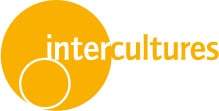
Discover the power of diversity
The power of anticipation is one of the of ways that diversity makes you smarter, according to an Oct. 2014 Scientific American article that was circulating social media networks in late 2016. The subtext reads, “Being around people who are different from us makes us more creative, more diligent and harder-working”. As a footnote to the scenario above, the article suggests that you would likely work harder to explain your rationale and anticipate alternative options when planning to meet with a collaborator from a different country. intercultures agrees.
It needs an intercultural mind
Why? Because “business as usual” is context-specific. If you’re striving to achieve success the same way in different places over time, you’re not doing it right. So-called „better practices“, Standard Operating Procedures (SOPs) and even what it means to carry oneself professionally—differs from country to culture to organization. It takes an “intercultural mind” to predict, prepare and present ideas that will be attractive enough to persuade, influence and attract—as in the example above—someone who generally thinks and works differently than you. intercultures calls it global skill.
Mining the diamond of diversity
This very principal—the power of anticipation—in one way or another, is a key solution that we’ve been sharing in our interventions for years. intercultures leads with the rationale that making use of multicultural diversity drives profit in terms of people engagement and inevitably, the financial bottom line. Once this fact is established, we begin the work of training—because mining the diamond of diversity doesn’t work unless you do.
Let’s start with gender diversity
Cultivating diversity works from the inside out. In an Aug. 2012 study by the Credit Suisse Research Institute, a positive correlation was found between, a.) companies that placed women on their corporate management boards and, b.) lower debt to equity and average growth. In this study, the Institute “examined 2,360 companies globally from [the years] 2005 and 2011, looking for a relationship between gender diversity on…boards and financial performance.” Some companies who experienced these results had only one woman on their board.
We love to look different
Another interesting finding related to the way that diversity can attract positive results involves the social construction of race in the U.S. In a 2004 study led by Stanford Graduate School of Education and the University of California (Los Angeles), 350+ university students first discussed a significant social issue, and then read opposing opinions on the issues. (The opinions were written by the researchers, and not the participating students.) The result? “When a black person presented a dissenting perspective to a group of whites, the perspective…led to broader thinking and consideration of alternatives than when a white person introduced that same dissenting perspective”. The lesson? Hearing disagreement from someone who looks different from us—whoever we are—excites more thought than when we hear it from someone who looks like the listening audience.
Experience the power of diversity at your workplace
Diversity makes easy sense in more ways than one. In order to achieve success in different contexts, it is necessary for individuals to anticipate in order to increase their personal power; organizations to practice diversity from the inside out; and leaders to influence by sometimes stepping aside to allow another voice to deliver the most persuasive message. Like anything else, once in the rhythm of it, good becomes better and better becomes best.
All quotes sourced from: Phillips, Katherine W. “How Diversity Makes Us Smarter.” Scientific American, 1 Oct. 2014.
The above article was included in our Nov. 2016 intercultures e-newsletter.
Photo credit: Getty Images.
